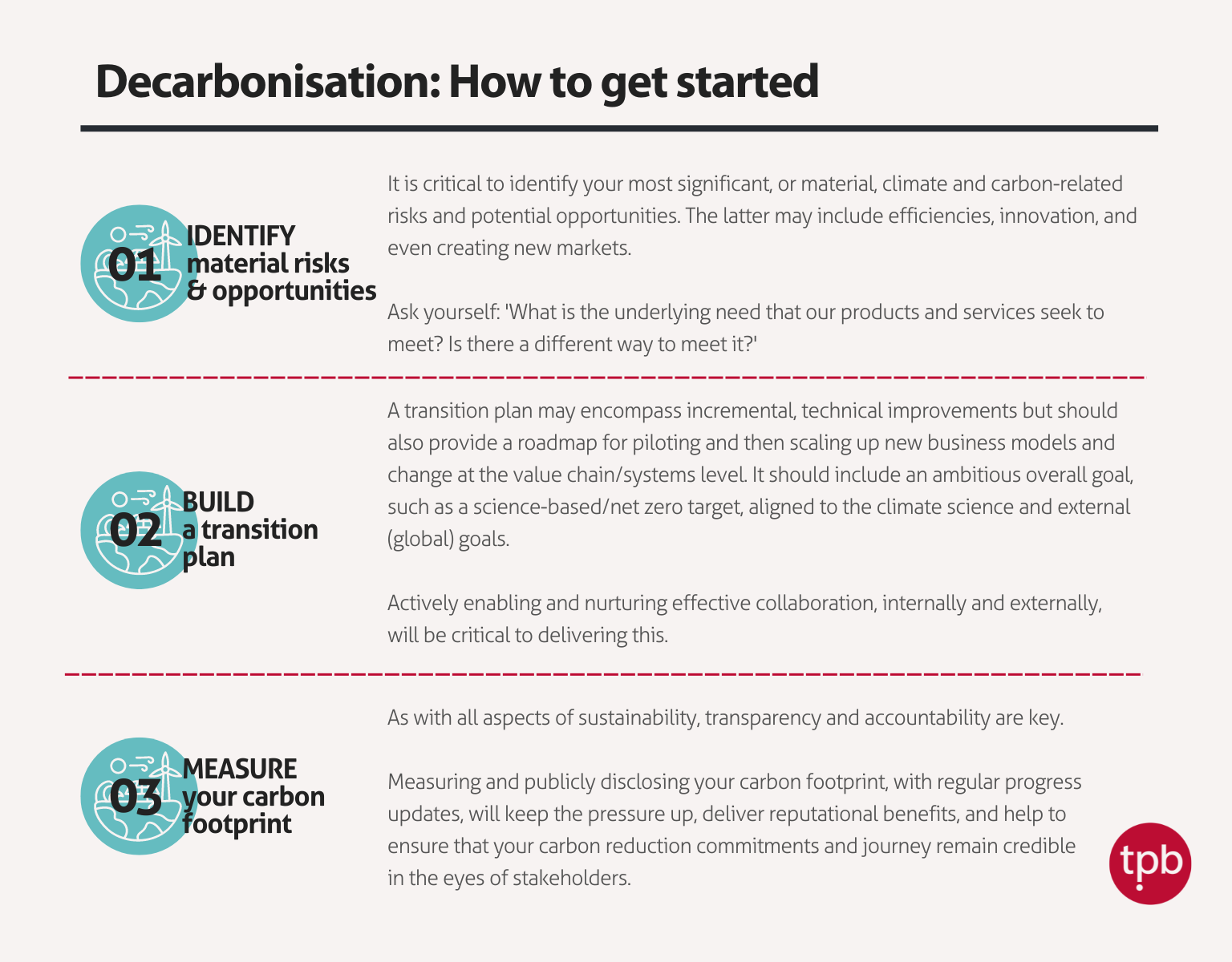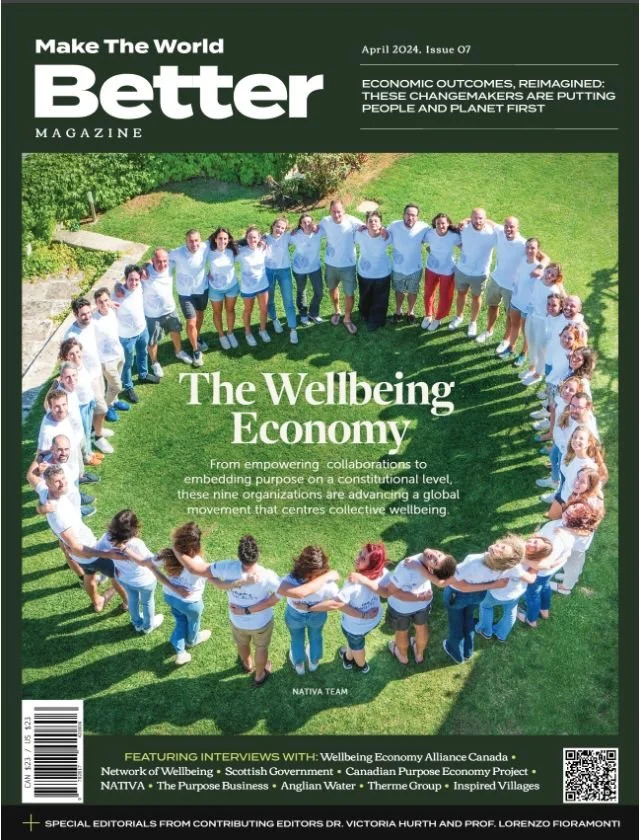Transitioning business models towards decarbonisation
We recently introduced a set of priorities, including guiding principles and starting points, for Asian companies seeking to pursue responsible growth. To flesh this out, we will delve a little deeper into the first priority: 'Transition business models towards decarbonisation'.
Why is decarbonisation critical for Asian companies? The region is a key production/manufacturing center in global supply chains, as well as an important source of agricultural goods. An engine of global growth, Asia-Pacific generates more than a third of world GDP yet also emits more than half of the world’s CO2 emissions.
With major international financial hubs like Singapore and Hong Kong, APAC has a responsibility - and an opportunity - to steer how financial capital is invested, how companies are run, and what form the region’s future economic growth will take. Will it be fossil-based, linear and extractive, or clean, circular and regenerative?
Focus on material impacts
For companies to decarbonise as quickly as the science demands, they must focus on their most significant, or material, climate-related impacts. Impacts may occur at different points across the value chain – from sourcing and resource extraction, through production/operations, to client impacts/consumer use.
Just as companies have climate impacts, so are they impacted by climate change. For example, food and beverage businesses are already seeing their supply chains disrupted by more frequent extreme weather and climate-related disasters; insurers face increasing payouts for these; companies across all sectors that have physical assets in higher-risk areas face higher insurance premiums. Carbon-intensive industries, such as fossil-based energy and transport, are increasingly vulnerable to secondary climate impacts, including tightening regulation and growing public and investor scrutiny.
Build alliances
When the most material impacts have been identified, alliances will need to be built internally and externally. Pooling technical, commercial, financial and other expertise within the organisation to create cross-functional internal teams and working groups, at both the strategic and operational levels, provides the capability to set goals and work through practical solutions.
External partners bring valuable insights and experience, building on what has been tried elsewhere – from the scientists and researchers providing credible evidence about specific climate-related risks; through the suppliers and disruptive innovators providing new low-carbon technologies, products and services; to the marketing and communications specialists who can make low-carbon solutions and lifestyles attractive to clients and consumers.
Then innovate
Increasingly, businesses recognise that technical, incremental improvements to the status quo cannot bring the scale of change needed at the pace required. Furthermore, business model innovation and system change can unlock radical efficiencies and create new markets.
Examples include:
The rapid expansion of high speed rail networks especially in China, southeast Asia and Europe, providing a lower-carbon alternative to private car ownership or aviation
Beyond Meat and several of their competitors' plant-based meat alternatives, which abate the need for animal farming and are helping to accelerate veganism's move into the mainstream
Ørsted (formerly DONG - Danish Oil and Natural Gas)'s strategic pivot to 100% renewable energy
In the finance sector, there is increasing recognition that new forms of finance are needed to support low-carbon and circular business models – hence the work of groups such as the Asia Sustainable Finance Initiative
Indeed, when it comes to decarbonisation, collaboration and innovation go hand-in-hand. A TPB strategic partner, Carbonless is a growing innovation and investment platform that helps scale-up low-carbon solutions in Asia by bringing together capital, mature start-ups, enterprises and government entities. Through the Carbonless Asia Challenge Hong Kong, MTR engaged innovative companies which could help enable the company to achieve its climate goals by providing novel and scalable solutions to decarbonise urban rail transport at scale.
The task of transformation that lies ahead may be exciting, but also daunting. So where to start?
Let’s break it down.
In an upcoming post we will expand on the second priority for Asian companies: ‘Make ESG and climate reporting part of good governance’.
Main contributor: Simon Lee, The Purpose Business




